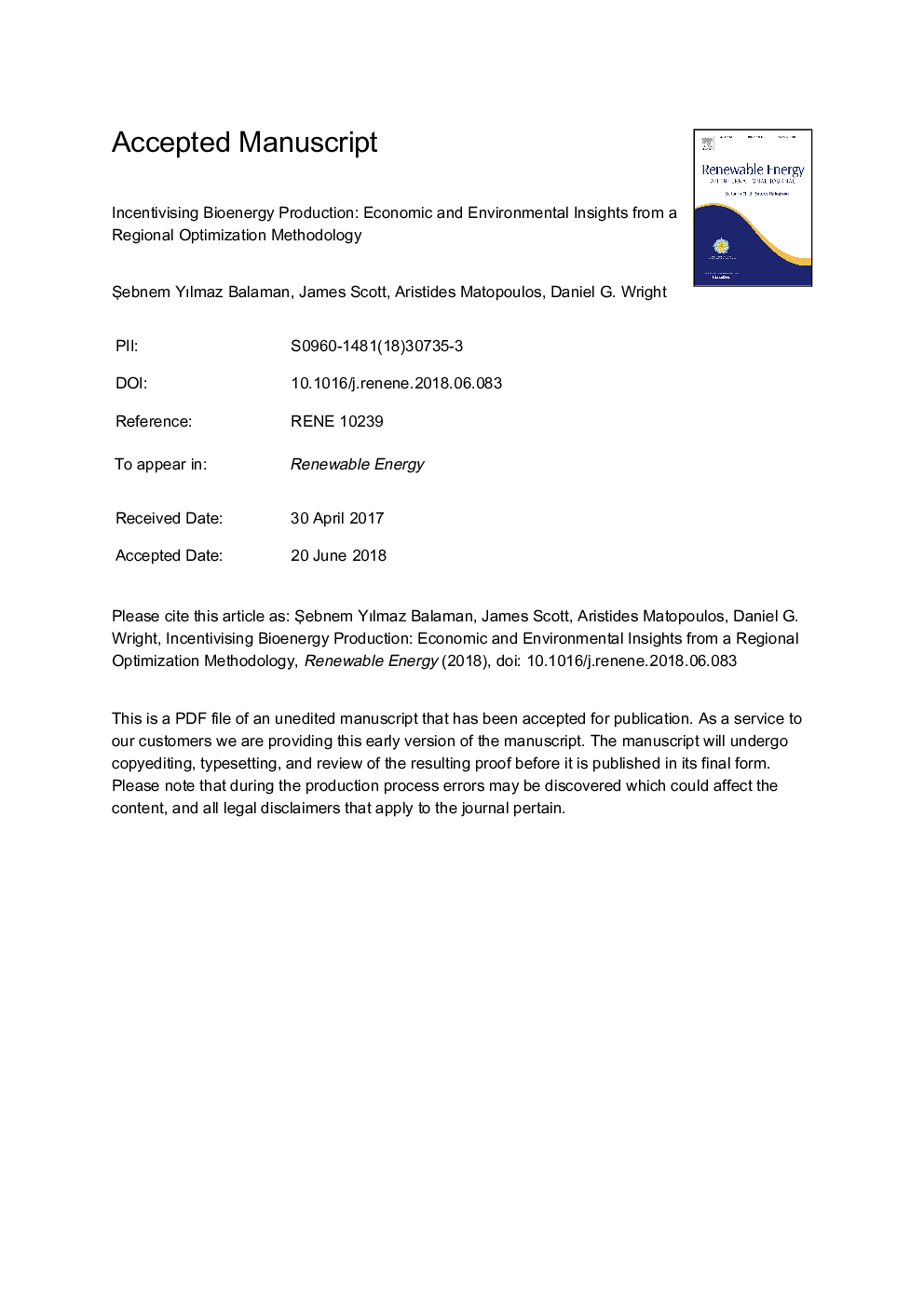| Article ID | Journal | Published Year | Pages | File Type |
|---|---|---|---|---|
| 6763837 | Renewable Energy | 2019 | 45 Pages |
Abstract
In conjunction with the European Union (EU) targets, the United Kingdom (UK) Government has introduced a range of mechanisms to foster the development and deployment of low carbon energy technologies and markets. This study focuses on the three main financial incentive schemes to promote renewable energy sector in the UK for electricity, heat and fuel production from renewables, namely feed-in tariff (FiT), Renewable Heat Incentive (RHI) and Renewables Obligation Certificate (RoC), considering the fact that optimal policy design depends on effective analyses of the impacts of incentives on the performance of renewable energy systems. The effects of potential changes in these incentive schemes on the economic and environmental performance of bioenergy sector are investigated using an analytical methodology. The methodology integrates fuzzy decision making and multi objective mathematical modelling in the same framework to capture uncertainties in the system parameters as well as economic and environmental sustainability aspects. Computational experiments are performed on bioenergy production using the entire West Midlands Region in the UK as case study region. The results reveal that the changes in incentive policies have a significant impact on the profitability of the supply chain, whereas environmental performance of the supply chain in terms of total GHG emissions is the least affected performance indicator by the changes in the incentive policies.
Related Topics
Physical Sciences and Engineering
Energy
Renewable Energy, Sustainability and the Environment
Authors
Åebnem Yılmaz Balaman, James Scott, Aristides Matopoulos, Daniel G. Wright,
